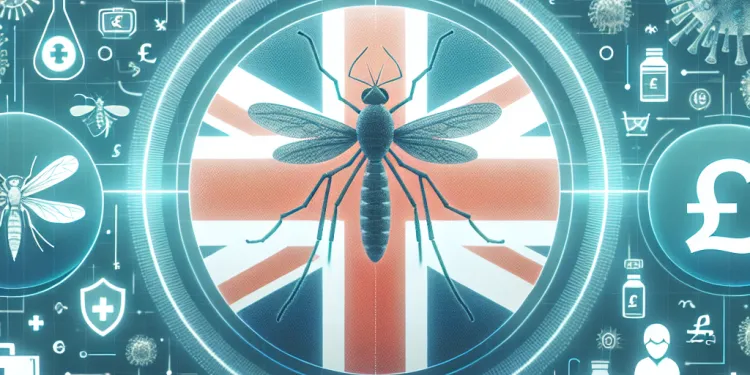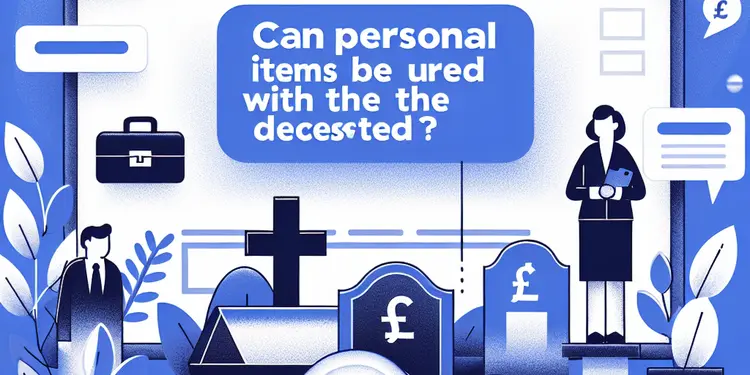
Find Help
More Items From Ergsy search
-

Can Nipah Virus be transmitted from person to person?
Relevance: 100%
-

How is Nipah Virus transmitted?
Relevance: 74%
-

What role do fruit bats play in Nipah Virus transmission?
Relevance: 73%
-

What is Nipah Virus?
Relevance: 70%
-

Is there a cure for Nipah Virus?
Relevance: 68%
-

Can Zika virus be spread from person to person in the UK?
Relevance: 68%
-

Can Nipah Virus cause outbreaks?
Relevance: 67%
-

Which animals are known to carry Nipah Virus?
Relevance: 62%
-

How is Nipah Virus controlled during outbreaks?
Relevance: 62%
-

How is Nipah Virus diagnosed?
Relevance: 59%
-

Can Chikungunya be transmitted from person to person?
Relevance: 59%
-

What should someone do if they suspect Nipah Virus infection?
Relevance: 59%
-

Why are Nipah Virus outbreaks considered a public health concern?
Relevance: 59%
-

Can Nipah Virus cause neurological complications?
Relevance: 58%
-

What are the symptoms of Nipah Virus infection?
Relevance: 58%
-

Where was Nipah Virus first identified?
Relevance: 57%
-

What preventive measures can reduce the risk of Nipah Virus infection?
Relevance: 57%
-

What regions are most at risk for Nipah Virus outbreaks?
Relevance: 57%
-

What global organizations are involved in Nipah Virus research?
Relevance: 56%
-

Has a vaccine been developed against Nipah Virus?
Relevance: 55%
-

What is the mortality rate of Nipah Virus infection?
Relevance: 53%
-

Can nettle rash spread from person to person?
Relevance: 45%
-

How is Chikungunya virus transmitted?
Relevance: 40%
-

How long is a person with measles contagious?
Relevance: 40%
-

How is the Zika virus transmitted?
Relevance: 39%
-

Can West Nile Virus be transmitted from person to person?
Relevance: 38%
-

Should people who have been in contact with an infected person get vaccinated?
Relevance: 37%
-

Bluetooth Tracker with Personal Alarm
Relevance: 36%
-

Are new variants more transmissible?
Relevance: 36%
-

Can you use a defibrillator on a wet person?
Relevance: 36%
-

Can personal items be buried with the deceased?
Relevance: 35%
-

Can inmates have personal belongings?
Relevance: 35%
-

Will personal savings allowances be updated in 2026?
Relevance: 35%
-

How is the Marburg virus transmitted?
Relevance: 35%
-

How is West Nile Virus transmitted?
Relevance: 34%
-

Will the personal allowance be altered for the 2026 tax year?
Relevance: 34%
-

What is the Ebola virus?
Relevance: 33%
-

Podiatrist Personal Footcare
Relevance: 33%
-

Can Marburg virus disease be prevented?
Relevance: 33%
-

How do live-in caregivers manage their personal time?
Relevance: 33%
Introduction to Nipah Virus
The Nipah virus is a zoonotic virus, meaning it can be transmitted from animals to humans. Originally identified in Malaysia in 1998, the virus has caused several outbreaks in South and Southeast Asia. As health authorities worldwide monitor such diseases, understanding the modes of transmission is crucial for prevention and control.
Transmission from Animals to Humans
Nipah virus is primarily spread from fruit bats (the natural hosts) to humans either directly or indirectly. Direct transmission occurs when humans come into contact with saliva or excreta from infected bats. Indirect transmission often happens when humans consume food products contaminated by these bats, such as raw date palm sap. Domestic animals like pigs can also become infected, and they represent another pathway for transmission to humans.
Human-to-Human Transmission
There is clear evidence that Nipah virus can be transmitted from person to person. This generally occurs through close contact with the body fluids and respiratory secretions of infected individuals, particularly in healthcare settings or among caregivers at home. The virus has been known to transmit through droplets, making proximity a key factor in the spread between humans.
Prevention of Human-to-Human Transmission
Prevention of human-to-human transmission involves several strategies. Health care settings must implement strict infection control measures, including isolation of infected patients and use of personal protective equipment by healthcare workers. Public health campaigns stress the importance of hygiene and avoiding close contact with infected individuals to minimize the risk of transmission. Improved diagnostic and detection techniques are also pivotal in early identification and containment of outbreaks. Furthermore, educating communities about the risks of transmitting the virus through shared meals and close contact is important in outbreak zones.
Conclusion
While Nipah virus is not currently a threat within the UK due to geographical factors and the absence of infected wildlife, understanding its transmission is crucial for global health awareness. Human-to-human transmission, though less common than animal-to-human transmission, is an important aspect of managing outbreaks. The global health community continues to monitor the virus closely, advocating for strong local healthcare responses and international cooperation in the face of potential outbreaks. Research into vaccines and antiviral treatments is ongoing, offering hope for better means of controlling the virus in future scenarios.
Introduction to Nipah Virus
The Nipah virus can move from animals to people. It was first found in Malaysia in 1998. Since then, there have been outbreaks in South and Southeast Asia. It is important to know how the virus spreads so we can stop it from making more people sick.
Transmission from Animals to Humans
The Nipah virus usually comes from fruit bats. People can get it from touching the bats’ saliva or droppings. Sometimes, people get sick after eating food, like raw date palm sap, that the bats have touched. Pigs can get the virus too, and they can pass it to people.
Human-to-Human Transmission
People can also pass the Nipah virus to each other. This often happens when someone is close to a sick person’s body fluids, like if you live with them or take care of them. The virus spreads in tiny droplets, so being close to a sick person can make you sick too.
Prevention of Human-to-Human Transmission
There are ways to stop people from passing the virus to each other. Hospitals need to keep sick people away from others and use special clothes and masks. Everyone should wash their hands and stay away from sick people. It helps to teach people how to avoid spreading the virus. We also need good tests to find the virus early. Teaching families in places where there are outbreaks about the virus helps too.
Conclusion
The Nipah virus is not a problem in the UK, but we still need to learn about it because it affects other parts of the world. People can spread it to each other, though it usually comes from animals. Health experts around the world keep watch on the virus to help stop big outbreaks. They are also looking for vaccines to keep people safe in the future.
Frequently Asked Questions
Can Nipah Virus be transmitted from person to person?
Yes, Nipah virus can be transmitted from person to person.
How does Nipah Virus spread between humans?
Nipah Virus spreads between humans through close contact with an infected person's body fluids.
What precautions should be taken to prevent Nipah Virus transmission?
Precautions include avoiding contact with infected individuals, maintaining good hand hygiene, and using protective equipment.
Is there a high risk of human-to-human transmission for Nipah Virus?
Human-to-human transmission is possible, particularly in healthcare settings where precautions are not adhered to.
Can Nipah Virus be contracted through casual contact?
Casual contact is less likely to result in transmission; close and prolonged contact is typically needed.
What are some common symptoms of human-to-human transmission of Nipah Virus?
Symptoms include fever, headache, drowsiness, respiratory issues, and in severe cases, encephalitis.
How can healthcare workers protect themselves from Nipah Virus?
Healthcare workers should use personal protective equipment and follow infection control protocols.
Can Nipah Virus be spread by asymptomatic carriers?
There is limited evidence to suggest asymptomatic carriers play a significant role in transmission.
What measures are in place to control Nipah Virus outbreaks?
Measures include isolating infected patients, tracing contacts, and monitoring for symptoms.
How long does Nipah Virus survive in the environment?
Nipah Virus does not survive long in the environment and needs a host to transmit.
Is there a vaccine available for Nipah Virus?
As of now, there is no licensed vaccine available for Nipah Virus.
What should someone do if they suspect they have been exposed to Nipah Virus?
They should seek medical attention immediately and inform healthcare providers about the potential exposure.
Can Nipah Virus spread through respiratory droplets?
Yes, Nipah Virus can spread through respiratory droplets from infected individuals.
How important is isolation in controlling Nipah Virus spread?
Isolation is crucial to prevent the spread of Nipah Virus to others.
What is the incubation period for Nipah Virus?
The incubation period for Nipah Virus is typically 4 to 14 days, but it can be longer.
Is person-to-person transmission of Nipah Virus common?
Person-to-person transmission is not the primary mode of transmission, but it can and does occur during outbreaks.
Can Nipah Virus be transmitted via food consumption?
Nipah Virus can be transmitted through consuming contaminated food, particularly fruits contaminated with bat saliva or urine.
Are there any travel advisories related to Nipah Virus?
Travel advisories may be issued during Nipah outbreaks, advising against travel to affected areas.
What is the fatality rate of Nipah Virus infections?
The fatality rate of Nipah Virus infections can range from 40% to 75%.
What role do animals play in the transmission of Nipah Virus?
Fruit bats are natural hosts of Nipah Virus, and the virus can be transmitted to humans directly or through intermediate hosts like pigs.
Can people give Nipah Virus to each other?
Yes, people can catch Nipah Virus from others.
Here are some tips to stay safe:
- Wash your hands often with soap and water.
- Stay away from people who are sick.
- Tell a grown-up or doctor if you feel sick.
You can use pictures or videos to understand better.
Yes, Nipah virus can spread from one person to another.
How does Nipah Virus spread between people?
Nipah Virus can move from one person to another. Here's how:
- If you touch someone who is sick with Nipah Virus.
- If you share food or drinks with someone who has the virus.
- If you touch things that a sick person has touched, like their clothes or toys.
To stay safe, wash your hands with soap and water. Keep away from sick people.
Tools that can help:
- Pictures: Look at pictures to understand better.
- Videos: Watch videos that explain how germs spread.
- Ask for help: Talk to a teacher or a caregiver if you have questions.
Nipah Virus can spread from one person to another. It happens when you are very close to someone who is sick and their body fluids, like spit or blood, get on you.
How can we stop the Nipah Virus from spreading?
To stay safe, do not get close to people who are sick. Wash your hands well and often. Wear things to keep you safe, like gloves or masks, if you need to.
Can people easily spread Nipah Virus to each other?
People can make each other sick, especially in hospitals if they don't follow safety rules.
Can you catch Nipah Virus from being near someone?
It's not easy to catch from just being near someone for a short time. You usually need to spend a lot of time close to the person.
What signs show that Nipah Virus spreads between people?
Nipah Virus can make people sick. Here are some signs to look for:
- Fever
- Coughing
- Headache
- Feeling very tired
- Trouble breathing
- Being confused
It is important to tell a doctor if you feel sick. They can help you feel better.
Tools to help understand:
- A friend or family member can help read this.
- Use pictures to understand better.
- Ask a teacher or helper if you have questions.
Some signs that you might be sick are feeling hot (fever), having a headache, feeling very sleepy, finding it hard to breathe, and if it's really bad, a problem with the brain called encephalitis.
If you find reading hard, try using tools that read text out loud or ask someone to help you understand.
How can healthcare workers stay safe from the Nipah Virus?
Here are some easy steps for healthcare workers to stay safe:
- Wear protective gear: Use gloves, masks, and gowns to keep germs away.
- Wash hands often: Clean your hands with soap and water.
- Use hand sanitizers: If there's no soap, use hand sanitizers.
- Keep things clean: Clean surfaces and tools that might have germs.
Tools to help you:
- Posters: Put up pictures to remind everyone to wash hands and wear masks.
- Buddy system: Work with a friend to check if you are using gear right.
Stay safe by using these tips!
People who work in healthcare need to wear special gear to keep safe, like masks and gloves. They also need to follow important rules to stop germs from spreading.
Can people without symptoms spread Nipah Virus?
Some people may have Nipah Virus and not feel sick. These people can sometimes still give the virus to others.
To stay safe, you can:
- Wash your hands often.
- Wear masks in crowded places.
- Stay away from sick people.
There is not a lot of proof that people without symptoms spread the illness a lot.
How do we stop Nipah Virus from spreading?
Steps to help stop the spread:
- Keep sick people away from others.
- Find out who they have been near.
- Watch for anyone getting sick.
You can use pictures or ask someone to help if you need more support.
How long does Nipah Virus stay alive outside the body?
Nipah Virus can't live outside for long. It needs a living thing to spread.
Can I get a vaccine for Nipah Virus?
No, there is no vaccine for Nipah Virus yet.
If you need help understanding this, use pictures or ask someone to explain. This can make it easier to learn.
Right now, there is no vaccine (a special medicine) ready to stop Nipah Virus.
What to Do if You Think You Have Nipah Virus?
If you think you have Nipah Virus, follow these steps:
- Call a doctor: Talk to a doctor or nurse.
- Rest: Stay at home and rest.
- Stay away from others: Do not go near people.
- Wash hands: Use soap and water often.
- Wear a mask: If you have to be around others.
Tools that can help:
- Medicine: The doctor may give you some.
- Thermometer: To check if you have a fever.
- Support: Ask someone to help you get food or medicine.
If you think you have been exposed, tell a doctor or nurse right away. They can help you.
Can Nipah Virus spread through the air?
Yes, Nipah Virus can spread through the air when people cough or sneeze. This means the virus can move from one person to another. It is important to be careful and stay away from people who are sick.
To stay safe, you can wear a mask and wash your hands often.
If you want help understanding this, you can ask someone you trust or use a simple health guide.
Yes, Nipah Virus can spread when sick people cough or sneeze. Tiny drops from their mouth or nose can make others sick too.
How important is staying away from others to stop Nipah Virus from spreading?
To stop the Nipah Virus from spreading to other people, it is very important to stay away from them.
How long does it take to get sick after catching the Nipah Virus?
It takes some time to feel sick after getting the Nipah Virus. This time is called the "incubation period." For the Nipah Virus, this can be around 5 to 14 days.
If it is hard to understand, it's okay to talk to a doctor or a nurse. They can explain things more clearly.
You can also use tools like picture cards or videos to help understand better.
The time it takes to show signs of the Nipah Virus is usually 4 to 14 days. Sometimes, it can take longer.
Can people catch Nipah Virus from other people easily?
The virus mostly spreads from animals to people. But, sometimes it can spread from one person to another, especially when there is an outbreak.
Can Nipah Virus spread through eating food?
Nipah Virus can spread if you eat food that has germs on it. This can happen if bats have touched the food, like fruits, with their spit or pee.
Is it safe to travel because of the Nipah Virus?
If you are going on a trip, check if the Nipah Virus is in that place. You can ask someone to help you find this information.
Tools like pictures or maps can help you understand better. You can also use apps that read text out loud.
When there is Nipah sickness, experts might say: "Do not travel to places where people are sick."
How many people die from Nipah Virus?
The Nipah Virus can make people very sick. Some people might not get better. This is how we think about it:
- If 100 people get sick with the Nipah Virus, about 40 to 75 people might die.
- This means it is very serious and dangerous.
Here are some tips to understand this better:
- Ask a doctor or a nurse to explain it to you.
- Look at pictures or watch videos about it.
- Talk with someone you trust to help you understand.
The chance of dying from Nipah Virus is high. Between 4 and 7 out of 10 people who get it might die.
How do animals spread Nipah Virus?
Fruit bats carry a germ called Nipah Virus. People can catch this germ from bats. Sometimes, animals like pigs can also spread it to people.
Useful Links
This website offers general information and is not a substitute for professional advice.
Always seek guidance from qualified professionals.
If you have any medical concerns or need urgent help, contact a healthcare professional or emergency services immediately.
Some of this content was generated with AI assistance. We’ve done our best to keep it accurate, helpful, and human-friendly.
- Ergsy carfully checks the information in the videos we provide here.
- Videos shown by Youtube after a video has completed, have NOT been reviewed by ERGSY.
- To view, click the arrow in centre of video.
- Most of the videos you find here will have subtitles and/or closed captions available.
- You may need to turn these on, and choose your preferred language.
- Go to the video you'd like to watch.
- If closed captions (CC) are available, settings will be visible on the bottom right of the video player.
- To turn on Captions, click settings .
- To turn off Captions, click settings again.
More Items From Ergsy search
-

Can Nipah Virus be transmitted from person to person?
Relevance: 100%
-

How is Nipah Virus transmitted?
Relevance: 74%
-

What role do fruit bats play in Nipah Virus transmission?
Relevance: 73%
-

What is Nipah Virus?
Relevance: 70%
-

Is there a cure for Nipah Virus?
Relevance: 68%
-

Can Zika virus be spread from person to person in the UK?
Relevance: 68%
-

Can Nipah Virus cause outbreaks?
Relevance: 67%
-

Which animals are known to carry Nipah Virus?
Relevance: 62%
-

How is Nipah Virus controlled during outbreaks?
Relevance: 62%
-

How is Nipah Virus diagnosed?
Relevance: 59%
-

Can Chikungunya be transmitted from person to person?
Relevance: 59%
-

What should someone do if they suspect Nipah Virus infection?
Relevance: 59%
-

Why are Nipah Virus outbreaks considered a public health concern?
Relevance: 59%
-

Can Nipah Virus cause neurological complications?
Relevance: 58%
-

What are the symptoms of Nipah Virus infection?
Relevance: 58%
-

Where was Nipah Virus first identified?
Relevance: 57%
-

What preventive measures can reduce the risk of Nipah Virus infection?
Relevance: 57%
-

What regions are most at risk for Nipah Virus outbreaks?
Relevance: 57%
-

What global organizations are involved in Nipah Virus research?
Relevance: 56%
-

Has a vaccine been developed against Nipah Virus?
Relevance: 55%
-

What is the mortality rate of Nipah Virus infection?
Relevance: 53%
-

Can nettle rash spread from person to person?
Relevance: 45%
-

How is Chikungunya virus transmitted?
Relevance: 40%
-

How long is a person with measles contagious?
Relevance: 40%
-

How is the Zika virus transmitted?
Relevance: 39%
-

Can West Nile Virus be transmitted from person to person?
Relevance: 38%
-

Should people who have been in contact with an infected person get vaccinated?
Relevance: 37%
-

Bluetooth Tracker with Personal Alarm
Relevance: 36%
-

Are new variants more transmissible?
Relevance: 36%
-

Can you use a defibrillator on a wet person?
Relevance: 36%
-

Can personal items be buried with the deceased?
Relevance: 35%
-

Can inmates have personal belongings?
Relevance: 35%
-

Will personal savings allowances be updated in 2026?
Relevance: 35%
-

How is the Marburg virus transmitted?
Relevance: 35%
-

How is West Nile Virus transmitted?
Relevance: 34%
-

Will the personal allowance be altered for the 2026 tax year?
Relevance: 34%
-

What is the Ebola virus?
Relevance: 33%
-

Podiatrist Personal Footcare
Relevance: 33%
-

Can Marburg virus disease be prevented?
Relevance: 33%
-

How do live-in caregivers manage their personal time?
Relevance: 33%


